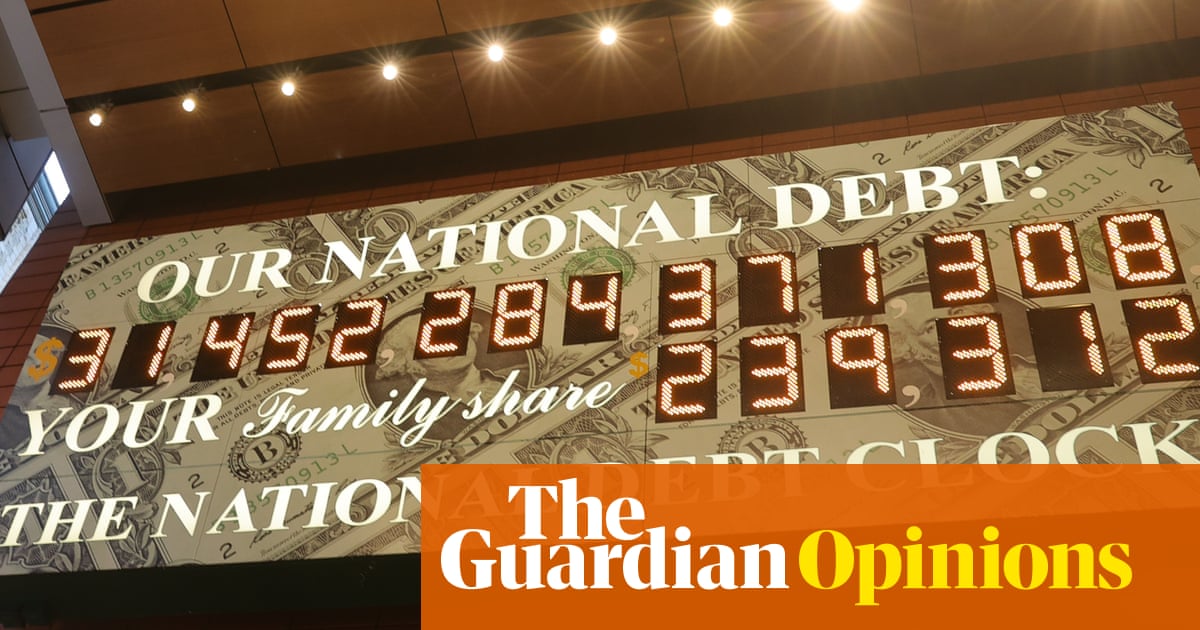For more than a decade, numerous economists – primarily but not exclusively on the left – have argued that the potential benefits of using debt to finance government spending far outweigh any associated costs. The notion that advanced economies could suffer from debt overhang was widely dismissed, and dissenting voices were often ridiculed. Even the International Monetary Fund, traditionally a stalwart advocate of fiscal prudence, began to support high levels of debt-financed stimulus.
The tide has turned over the past two years, as this type of magical thinking collided with the harsh realities of high inflation and the return to normal long-term real interest rates. A recent reassessment by three senior IMF economists underscores this remarkable shift. The authors project that the advanced economies’ average debt-to-income ratio will rise to 120% of GDP by 2028, owing to their declining long-term growth prospects. They also note that with elevated borrowing costs becoming the “new normal”, developed countries must “gradually and credibly rebuild fiscal buffers and ensure the sustainability of their sovereign debt”.
This balanced and measured assessment is far from alarmist. Yet, not too long ago, any suggestion of fiscal prudence was quickly dismissed as “austerity” by many on the left. For example, Adam Tooze’s 2018 book on the 2008-09 global financial crisis and its consequences uses the word 102 times.
Until very recently, in fact, the notion that a high public debt burden could be problematic was almost taboo. Just this past August, Barry Eichengreen and Serkan Arslanalp presented an excellent paper on global debt at the annual gathering of central bankers in Jackson Hole, Wyoming, documenting the extraordinary levels of government debt accumulated in the aftermath of the global financial crisis and the Covid-19 pandemic. Curiously, however, the authors refrained from clearly explaining why this might pose a problem for advanced economies.
This is not merely an accounting issue. While developed countries rarely formally default on their domestic debt – often resorting to other tactics such as surprise inflation and financial repression to manage their liabilities – a high debt burden is generally detrimental to economic growth. This was the argument Carmen M Reinhart and I presented in a brief article for a conference in 2010 and in a more comprehensive analysis we co-authored with Vincent Reinhart in 2012.
These papers sparked a heated debate, frequently marred by gross misrepresentation. It did not help that much of the public struggled to differentiate between deficit financing, which can temporarily boost growth, and high debt, which tends to have negative long-term consequences. Academic economists largely agree that very high debt levels can impede economic growth, by crowding out private investment and by narrowing the scope for fiscal stimulus during deep recessions or financial crises.
To be sure, in the pre-pandemic era of ultra-low real interest rates, debt really did seem to be cost-free, enabling countries to spend now without having to pay later. But this spending spree rested on two assumptions. The first was that interest rates on government debt would remain low indefinitely, or at least rise so gradually that countries would have decades to adjust. The second assumption was that sudden, massive spending needs – for example, a military buildup in response to foreign aggression – could be funded by taking on more debt.
While some might argue that countries can simply grow their way out of high debt, citing the US postwar boom as an example, a recent paper by the economists Julien Acalin and Laurence M Ball refutes this notion. Their research shows that without the strict interest rate controls the US imposed after the end of the second world war and periodic inflationary surges, the US debt-to-GDP ratio would have been 74% in 1974, instead of 23%. The bad news is that in today’s economic environment, characterised by inflation targeting and more open global financial markets, these tactics may no longer be viable, necessitating major adjustments in US fiscal policy.
Kenneth Rogoff is professor of economics and public policy at Harvard University. He was the IMF’s chief economist from 2001-03.







